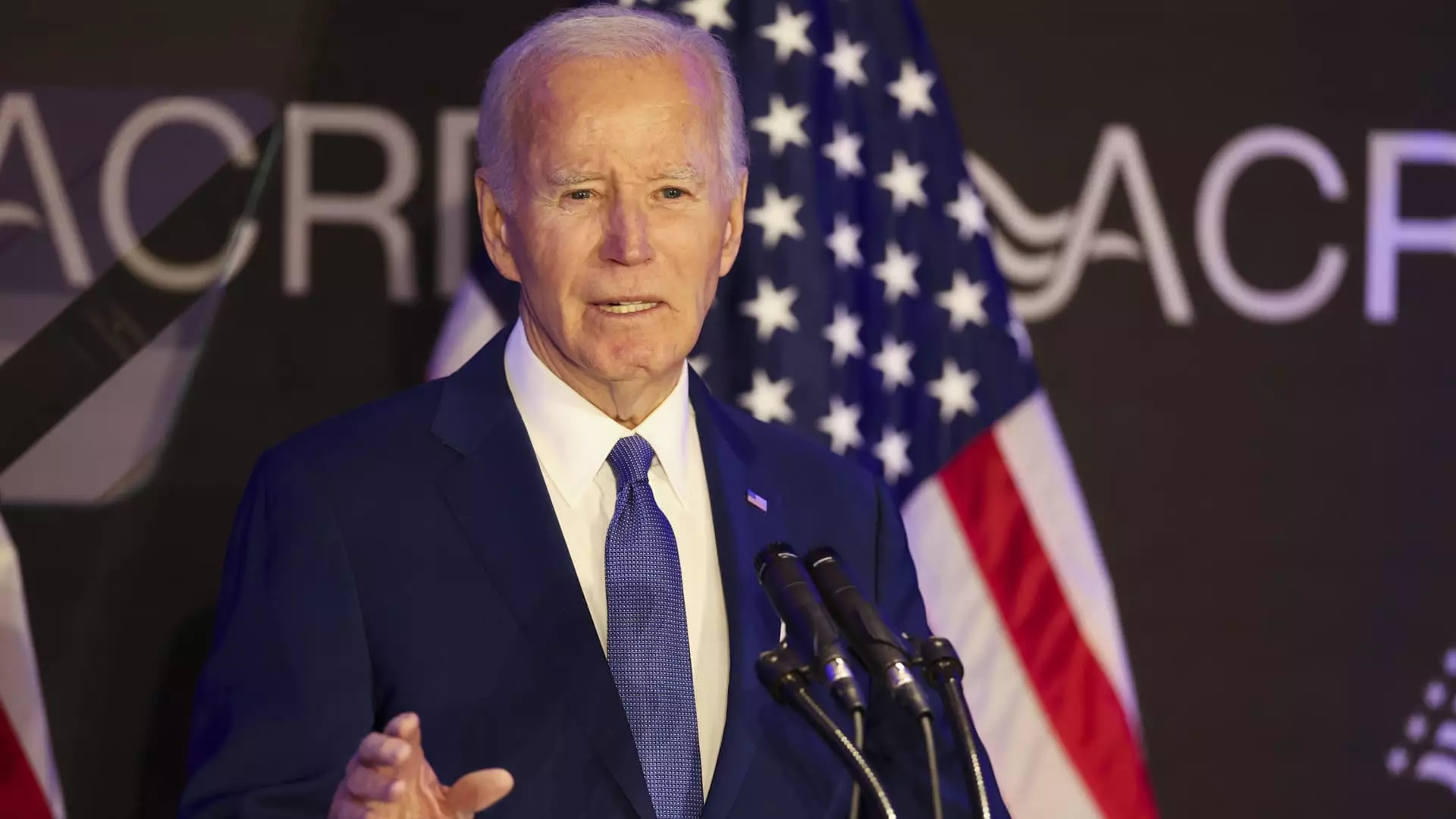The news of former President Joe Biden’s prostate cancer diagnosis sent ripples of concern through the political landscape. At 82, Biden’s health has been scrutinized more than any other leader in contemporary U.S. history. Diagnosed with an aggressive Gleason score of 9, the spreading of cancer cells to his bones adds a dramatic yet sobering layer to an already intense political narrative. However, as much as this diagnosis poses a serious personal challenge for Biden, it inevitably conjures a broader discussion about the intersection of health, age, and leadership capabilities in a world increasingly focused on rapid results.
In an era where scrutiny is relentless, the President’s battle against cancer risks being reduced to political fodder or displayed as a point of weakness. Yet, it is absolutely essential to resist that temptation. The dilemma here is not whether Biden’s health will be weaponized against him, but rather how such a personal tribulation can humanize a figure often perceived as distant. The vulnerability of a leader confronting a life-threatening illness could redefine what it means to lead—embracing authenticity over indifference in a society rife with voter apathy.
The Impact of Aging Leaders on Political Discourse
Biden’s health issues reflect a growing concern surrounding the effectiveness of aging leaders in high-stress roles. Political opponents have long focused on age as a factor that equates to incapacity—a misguided assumption that overlooks experience and wisdom. The dilemma here is multi-faceted; while it’s vital to prioritize health in leadership, denigrating individuals based solely on age can dilute the essence of what leadership should represent in the 21st century.
President Biden’s public journey through health trials adds complexity to a political arena that often celebrates youthful vigor at the cost of experienced wisdom. His fight against prostate cancer inserts a layer of empathy into a dialogue commonly marked by aloofness and disdain. Biden’s life narrative—marked by personal loss due to cancer—will never separate from his political journey and ambition. The dedicated focus on cancer awareness through his “cancer moonshot” initiative demonstrates a commitment to not only his personal battle but also to that of the millions affected by this harrowing disease.
Coping with Treatment and the Weight of Expectations
As Biden navigates his treatment options, the implications reach beyond his immediate health concerns. The mere mention of hormone-sensitive cancer treatments evokes hope; it presents an opportunity for effective management while reinforcing what is often a negated aspect of health discourse: that hope exists even in the most dire circumstances. His family’s choice to drive the conversation around treatment signboards a collective fight, a testament to the role of familial bonds that often hold the fabric of resilience together.
Yet, the burden of expectation weighs heavily on any leader, particularly one who has gallantly faced cancer within their own family. The sentiment conveyed from both allies and adversaries alike illustrates an undeniable thread of unity, reaffirming humanity before politics—even if this is merely a fleeting moment in the public eye. Compassion must reign supreme as Biden faces his diagnosis; healing takes precedence over political competition.
The Broader Implications for Candidacy and Legacy
Given the current realities of Biden’s health, one wonders about the implications for his candidacy and legacy at a time when he was confronting a challenging reelection campaign. Would a diagnosis that could potentially hamper his ability to lead dilute the hopeful rhetoric of his presidency? The question persists: As voters scrutinize the new-age attributes of leaders, will Biden be perceived as a tragic figure battling illness, or as a steadfast warrior working through hardships while championing the causes that matter?
His ability to galvanize the nation could very well hinge on his personal journey. In a political culture fixated on immediate success and failings, Biden’s resilience could shift narratives from mere ideologies to stories of triumph over adversity. There is power in vulnerability, and that might just serve as the beating heart of Biden’s legacy—a legacy that might not be characterized by victories alone but also by the indomitable spirit showcased in the face of illness.


Leave a Reply